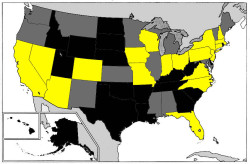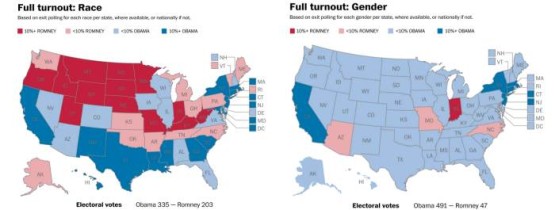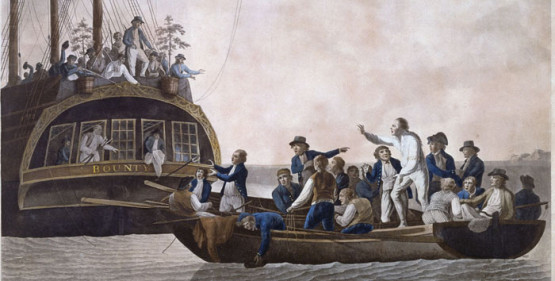Monthly Archives: March 2015
 For cleaner fuel burning, European utility companies are turning to wood. What could go wrong?
For cleaner fuel burning, European utility companies are turning to wood. What could go wrong?
Matt Yglesias lauds changes in Houston’s bus transit system.
Two Rotterdam School of Management professors argue that gender quotas in management drive away both women and men.
America’s true silent majority: German-Americans. I’ve got some German on my mother’s side.
Janet Halley looks at sex, gender, race, and Title IX enforcement of rape charges on campus. Whitefaces maybe should be changed, though.
Here are some awards for the weirdest high school mascot names in Texas. In a world of Tigers and Wildcats, I consider these to be a relief and wish there were more of them.
Noah Berlatsky argues that the elongated copyright terms restrict scholarship. As the creators’ families and DC fought over the rights to Superman, it was just amazing to me that someone can still own the rights to Action Comics #1.
Between thesmug superiority of the left and the know-nothingism of the right, Roberta X seems to have gone apolitical.
Marryin’ cousins make for more babies.
McMansions are back.
Ryan Cooper believes self-respecting atheists should ditch New Atheists.
 James thinks I need therapy, on account of my affection for Brutalist architecture.
James thinks I need therapy, on account of my affection for Brutalist architecture.
Which got me thinking… why do I like it? It’s not like I am particularly an architectural critic. I’m not even sure it falls under the category of “Having an opinion to have an opinion,” which I sometimes do.
My first thought was comic books, which explains my aesthetic tastes in some things (like solid colors over patterns). That would explain my appreciation of gothic architecture, for example. But if brutalist architecture is common in comic books the same way that gothic architecture often is, I can’t think of any examples.
But I like it for its simplicity, raw utilitarianism. Yet I don’t have the same fondness for the glass boxes that take up skylines (I don’t dislike them, either, but it’s not the same). But my instinct is along the lines of “I like it because that’s how government buildings are supposed to look.” Why do I think that?
I think it’s because of my dad.
My father worked at a sprawling government installation that more or less defines the area of the suburbs where I was raised. I will call it Livingston AFB. And he actually worked on the base, as opposed to across the street where my brother does. Which meant that when I went to see him at work, I would go onto the base with all of its buildings that were… brutalist. Or something indistinguishable to it, to my eye.
 And of course my father was awesome, the government agency he worked for was awesome, and all that jazz. Better yet, it was in the pre-9/11 days when you had a degree of free access to it (I think the sticker on our cars were required), and driving around it was interesting with all of the planes and other aircraft they had on display. And, of course, it was the very symbol of the federal government where I grew up.
And of course my father was awesome, the government agency he worked for was awesome, and all that jazz. Better yet, it was in the pre-9/11 days when you had a degree of free access to it (I think the sticker on our cars were required), and driving around it was interesting with all of the planes and other aircraft they had on display. And, of course, it was the very symbol of the federal government where I grew up.
So other designs that are so-called “nice looking” and a hoity-toity “non-depressing” and “sort of looks oppressive” carry no truck with me.
And of course, once you like something and dislike something, you come up with more reason to like or dislike it. Which is probably where my “honesty in architecture” comes from. And my vague belief that government facilities shouldn’t look nice. They should be there, and tolerable. Like the government! Or something.
 Ed Riley, younger brother of freshly minted Nebraska football coach, argues that football’s benefits outweigh the risk, for young people.
Ed Riley, younger brother of freshly minted Nebraska football coach, argues that football’s benefits outweigh the risk, for young people.
Wendy Kaminar tried to have a discussion at Smith about freedom of speech. It ended up largely redacted in the transcript.
Michael Brendan Dougherty argues that Uncle Sam is a horrible nutritionist.
Jennifer Deal explains that rest is important for work.
People look at me sideways when I mention Kansas and Utah as places with tech job opportunities, but there’s a there there, and as Silicon Valley becomes more crowded, I expect it to become more popular among mid-level employees with families. (Also: Austin!)
Decoding superior online dating profiles.
Francis Wilkinson blames illegal immigration on baby boomers.
Fender benders are almost a thing of the past.
David Sims ponders a Legend of Zelda TV series. I remember how all of my friends thought the 80’s series was really good. I’m glad that I have been vindicated by thinking it was pretty bad. Not sure that they could make a series that I am particularly interested in, though.
At Cancer Research UK, Nikki Smith takes the media to task for its misleading reportage on ecigarettes, and Prof Lynn T Kozlowski tells parents whether they should worry about their vaping teenagers.
The Atlantic reports on the logistics of the Antarctic winter, where you don’t bother to fly because temperature is below that at which fuel freezes.
1/ So I chuckled at this @SMBCComics today:
http://t.co/6uxuBlOqDA
But I realized that some of it was off because of our modern myths.
— Alex Knapp (@TheAlexKnapp) March 21, 2015
2/ The comic points to our idea that our ancestors saw being the center of the universe as a sign of exaltation or being special.
— Alex Knapp (@TheAlexKnapp) March 21, 2015
3/ Funny thing, though – this wasn't the case!
In Aristotle-influenced Medieval philosophy (Islamic and Christian), this was bad!
— Alex Knapp (@TheAlexKnapp) March 21, 2015
4/ As Mano Singham noted awhile back (http://t.co/flHO2oiXbo), they thought it was the worst part of the universe.
— Alex Knapp (@TheAlexKnapp) March 21, 2015
5/ And they thought it was the worst part of the universe because in the Aristotelian physics, the center is where all the muck collects.
— Alex Knapp (@TheAlexKnapp) March 21, 2015
6/ And that's an idea that fits in nicely with a picture of a world Fallen from glory after Adam and Eve committed Original Sin.
— Alex Knapp (@TheAlexKnapp) March 21, 2015
7/ The upshot being, geocentrism isn't arrogance by putting humanity at the head of the table, but humility by sticking it in the garbage!
— Alex Knapp (@TheAlexKnapp) March 21, 2015
8/ It's fascinating to me how much of the folklore about history of science gets promoted by pro-science folks despite having no validity.
— Alex Knapp (@TheAlexKnapp) March 21, 2015
9/ There is, for whatever reason, a need to see our ancestors as deluded dunces arrogant in their ignorance. But this wasn't the case!
— Alex Knapp (@TheAlexKnapp) March 21, 2015
10/ The real story about resistance to heliocentrism is much more interesting, b/c it was less about philosophy and more about EVIDENCE.
— Alex Knapp (@TheAlexKnapp) March 21, 2015
11/ Namely, that until Kepler came along, the Copernican model just didn't predict stuff as well as Ptolemaic ones!
— Alex Knapp (@TheAlexKnapp) March 21, 2015
12/ The folk history of science is all about lone geniuses who find the truth and fight ignorant superstitions.
— Alex Knapp (@TheAlexKnapp) March 21, 2015
13/ But the real history of science is about collaborations, rivalries, serendipity and debate. And its interaction with religion complex.
— Alex Knapp (@TheAlexKnapp) March 21, 2015
14/ To me, it's a shame that so many in the skeptical/science community uncritically accept the "lone genius vs superstition" narrative.
— Alex Knapp (@TheAlexKnapp) March 21, 2015
15/ Because not only is it historically inaccurate, it paints a false picture of how science works!
Fin (for now)
— Alex Knapp (@TheAlexKnapp) March 21, 2015
Eye-tracking technology can help detect concussions in football and maybe Alzheimer’s.
Nathan Washburn looks at the decline of the rural hospital and what can be done about it.
In order to avert global warming, some experts argue we need to ramp up nuclear power in a big way.
The police want Waze to remove its cop-spotting feature. With Nokia Here now available, that’s one of only a couple reasons I use Waze at all these days.
An effort to give Vermont a Latin motto has run into some resistance because immigration… or something.
I’d kind of expect Salon to hedge a bit on the vaccination issue. Instead, they giggle at an efforts to troll Amazon reviews of an anti-vax book.
If you can name one of your state’s senators, you’re a step ahead of most millenials.
Over a decade ago, John Judis co-wrote a book about the Emerging Democratic Majority, but now he says it was illusory and is talking of the Emerging Republican Advantage. {More}
The Incidental Economists want everybody to get their vaccines, but Aaron Carroll wants us to stop asking politicians gotcha questions about vaccines, and Bill Gardner wants us to stop hating on the parents.
The oil boom in North Dakota brought with it quite a bit of diversity.
Yay Brutalism!
Details have been leaked about a new Chinese air craft carrier, but Ryan Faith says they raise more questions than they answer.
That the dude claims to have had sex with a dolphin is creepy. That it allegedly lasted a year? Not mitigating.
College students are drinking less than they used to! They’re also hanging out and going out less, too.
High-tech firms are having difficulty filling well-paying sales positions, and are having to reconsider how they advertise these jobs as well as the pay structure.
Philip Bump and the Washington Post have some egg on their face after doing a “statistical analysis” that demonstrated what the electoral map would look like with 100% turnout. What they got were two maps:
Which was, evidently, not enough to raise enough alarm bells to reconsider the project (instead they just note the flaw and move on). Vox immediately pounced:
But here’s the gigantic problem: state-specific exit poll numbers were only available for 18 states in 2012. There’s also a national exit poll that offers composite results for the whole country. So for the 32 states without individual exit poll results, the Post used those national exit poll numbers to make projections.
The problem with that is that looking at how women voted nationally isn’t a good way to project how women in conservative Kentucky will vote. Similarly, how white people voted nationally doesn’t tell you all that much about white voters in liberal Vermont, as Josh Barro argued on Twitter.
That’s why the Post’s map based on racial projections comes up with the odd result of the South going Democratic and much of New England going Republican — because they had no individual exit poll data for those states. Instead, they assumed that white voters in each of them, under full turnout, would vote like white voters did nationally (59 percent for Mitt Romney).

States polled shown in gold. Black for the states originally eliminated, gray for states eliminated some time later.
Even if they got rid of the skew (which they didn’t quite), valuable information was lost. Given the strain that news organizations are under, it’s perhaps not reasonable to expect them to stand out voting booths in Rhode Island or South Dakota, but it would be really nice if someone one. These elections only happen once every four years. And the Washington Post would save itself some embarassment.
The Washington Post did go back and look at the data from 2004, though, from back in the halcyon days when all states were counted. The results were actually a bit unexpected, as (to whatever extent the data reveals anything) Bush might have done better in 2004 than he did, potentially flipping Pennsylvania and Wisconsin. Only a bit unexpected, though, as Bush underperformed in the electoral college (which was closer than the national popular vote). It should also be added that the 2004 vote count is less useful than today, due to various demographic changes. Which is why having the 2012 data would be nice.
Would you like to see the ABC fall promo reel from 1982? Here you go:
Remember how big of a deal it used to be when the networks would announce their new shows?
Here’s 1967:
Here is Fox’s from 1987, notable because it was the first season Fox tried to compete with the big three. Notable series introduced include 21 Jump Street and Married With Children:
[Co-published at the Bawdy House]
President Obama has suggested that mandatory voting could offset the influence of big money in campaigns. There’s much that is incoherent in this idea.
First, Democrats are doing as well as Republicans in bringing in big money, but their own electoral failure demonstrates big money itself does turn elections.
Second, the non-voters are generally the least engaged,* who presumably are the most likely to be easily swayed by the advertising of big money, or else might vote essentially randomly.
Third, mandatory voting is illiberal. Forced political participation is another form of social control, rather than a form of liberty. Thorouean types are forbidden. The quiet person who harms no one, pays her taxes without complaint, volunteers in the community, but prefers to not vote is made into a criminal.
Fourth, I object to the instinct to motivate people through punitive action. If as a public policy we want people to vote, then let’s look for positive ways to do so. Traditionally this is done via the parties. Voter mobilization is, in fact, one of the primary purposes of parties, and perhaps the primary purpose.
Fifth, Obama is suggesting that these people should vote for their own good. Mandating that people act in their own interest is perverse, and in my view an improper task for government.
Sixth, it’s not at all certain that big money actually deters turnout, rather than stimulating it.
Overall, it appears to me that the President is concerned about Democratic voter turnout specifically, under the guise of being concerned about overall electoral turnout. He specifically mentioned low turnout among young, lower income, immigrant and minority groups, and criticized efforts to deter their turnout. While it’s fair to argue that efforts to deter turnout are a legitimate public policy problem, the fact remains that Obama is particularly focused on low turnout among populations that he expects to be more supportive of his party, so his solution is not to strengthen his own party’s GOTV efforts, or to find ways to effectively combat voter suppression efforts, but to mandate voting by his party’s likely supporters. Even if successful, though, the lack of close races suggests mandatory voting would have little effect on outcomes.
Under the guise of public policy, this appears to be a means of using law to rig the vote in the Democrats’ favor, no less than voter ID laws are (unsuccessful, I think) efforts to rig the vote in Republicans’ favor, and again under the guise of public policy.
Politicians will normally obscure self-interest behind appealing public interest slogans. They do so because it works, which means appeals like my post here to ignore the slogans will only be effective at the margins.
_____________
*Not solely. I have not voted when I have disliked the options, and I have had a political scientist far more reputable than me assert he gives money rather than voting because it gives his effort more influence.
The island of Pitcairn is giving away free land to people who want to move there. So far, no luck:
The population on Britain’s smallest colony has been dwindling for years, and there are now fewer than 50 islanders left. But locals are struggling to find new settlers to follow in the footsteps of Fletcher Christian, who led the mutiny.
Only one application has been received to move to the island, even though the government provides all immigrants with a plot to build their own house and temperatures stay above 62F (17C) all year round. {…}
Since then, the Pitkerners have been sustained by government aid as their population has shrunk. At its height, just before the Second World War, 200 residents lived on the sub-tropical island, which measures two square miles.
Notably, Pitcairn is known for a pretty horrific scandal some years back.
Jason Kuznicki suggested that would-be libertarian seasteaders take it over. It’s an… interesting proposition. Like the Free State Project, except for an entire island.
 The first issue, though, is that Pitcairn isn’t independent. I don’t know what strings might be attached to the aid that Pitcairn receives, but at least as long as it is a dependent on the crown. I also don’t know what freedoms they might gain by becoming financially independent, if they could manage to do so (which would be hard, as they don’t have reliable 24-hour electricity). But it would be a libertarian paradise that exists at the mercy of the crown (or, really, parliament). If they get wind that a bunch of outsiders are planning to hijack the island, the open invitation could close really fast.
The first issue, though, is that Pitcairn isn’t independent. I don’t know what strings might be attached to the aid that Pitcairn receives, but at least as long as it is a dependent on the crown. I also don’t know what freedoms they might gain by becoming financially independent, if they could manage to do so (which would be hard, as they don’t have reliable 24-hour electricity). But it would be a libertarian paradise that exists at the mercy of the crown (or, really, parliament). If they get wind that a bunch of outsiders are planning to hijack the island, the open invitation could close really fast.
The next issue is that the expansion possibilities are limited. Pitcairn itself is really small. So if you have a successful run at it, then what? You have to start working to keep people out, or it becomes so crowded that you have to start passing laws and more laws to try to sort everything out. Density and liberty (as defined by those not-on-the-left) are not very compatible, ultimately.
 So you’d be left with two options. first takes you right back to seasteading. The second is to work towards inhabiting the other of the Pitcairn Islands. Britain would probably object if you tried to inhabit Henderson Island, because of its unique ecology (an attempt to develop it in the 80’s was approved by Pitcairn but then vetoed by the British), but it is an order of magnitude larger than Pitcairn itself. So you’d have to be mum on your plans to take it over. There are two other islands or island-sets. Oeno serves as a holiday island, and Dulcie is an interesting looking atoll that doesn’t have any people on it.
So you’d be left with two options. first takes you right back to seasteading. The second is to work towards inhabiting the other of the Pitcairn Islands. Britain would probably object if you tried to inhabit Henderson Island, because of its unique ecology (an attempt to develop it in the 80’s was approved by Pitcairn but then vetoed by the British), but it is an order of magnitude larger than Pitcairn itself. So you’d have to be mum on your plans to take it over. There are two other islands or island-sets. Oeno serves as a holiday island, and Dulcie is an interesting looking atoll that doesn’t have any people on it.
It’s rough going for making a country, even if you could somehow get away with it, especially since all of these islands are really far apart from one another. But it could, conceivably, serve as a base for a series of seasteads. Maybe.
But you gotta get past the crown first.
 Cobb appraises the Giuliani-Obama conflict, saying “really revealing itself in this battle of blather is how much the American electorate has been reduced to bickering over symbols.” What it made me think of is how we’ve turned out leaders into symbols.
Cobb appraises the Giuliani-Obama conflict, saying “really revealing itself in this battle of blather is how much the American electorate has been reduced to bickering over symbols.” What it made me think of is how we’ve turned out leaders into symbols.
Karol Markowicz, Soviet-born but American raised, watches The Americans. (Please be stingy with unrot13ed spoilers, as I have not yet seen anything from the new season.)
Here are nine names on the verge of extinction. I’m partial to the name Villan, though I’d go with Miracle in a pinch if I were a salesperson.
The administration has backed off plans to ban a particular kind of bullet for the AR-15.
I have a question for Apple/iPhone peeps: Is it really that hard to selectively turn off app notifications on the iPhone?
Whether you are in favor of Teach For America or against it, a new study backs you up.
You may laugh at this, but when werewolves stop at the Georgia state line, you won’t be laughing then.
Orleans Parish is prosecuting a witness who recanted his testimony from a 20-year old murder case. I doubt Washington Parish will be similarly inclined in this case…
This article, explaining how much Monsanto could possibly stand to gain from the unrest in Ukraine, makes me wonder if Monsanto won’t become the new Big Oil in the cultural map. Monsanto does seem to be popping up more frequently as a villain on television.
Anne Applebaum says that Britain is retreating from the world stage, and the world is worse off for it.
The rising cost of employee fatigue.
The moral, philosophical, and ethical implications of reissuing Mein-Kampf.



